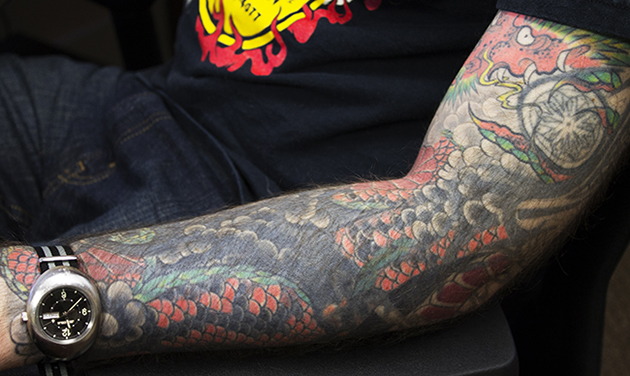By Justin Katz | gargoyle@flagler.edu
Everyone has a story to tell about themselves, but some stories are deeper than what’s on the surface.
Katie Frazier
Flagler College junior Katie Frazier comes from a religiously conservative background. A part of that culture included her parents, who taught at a Christian school with rules that reflected their fundamental baptist values.
“I attended the school too, and the dress code required girls to ‘look like girls’ and boys to ‘look like boys'” Frazier said. “At its longest, my hair was about eighteen inches long. I think the shortest I was ever allowed to cut it was about shoulder length.”

Although her parents would have allowed her to cut her hair after high school graduation, Frazier hesitated. Reminded of sermons she heard growing up, she knew the decision was frowned upon. According to her church, it was sinful for a woman to have short hair.
To the shock of both her family and the community, Frazier finally found the courage to cut her hair.
“I feel so much better with short hair– more like myself, more comfortable in my own skin,” Frazier said.
“When [people] find out how I was raised, a lot of people’s first reaction is to ask, ‘How did you turn out so normal?’ I always kind of laugh at that, because I may look and act pretty normal but the way I think about things has been impacted by the experiences I’ve had.”
James Phillips
“I’ve had people tell me that I obviously made poor choices, and despite my attempts to educate them, they insist they know more about a disease they don’t have,” Phillips said.
Phillips knows his diabetes is life-altering, but he wants people to understand that, for him, it isn’t the end of the world.
“It is fairly easy to control, once you figure things out,” Phillips said.
“The biggest misconception about diabetes is that you simply get it for eating unhealthily,” he said.
While some forms of diabetes can be contracted through an unhealthy lifestyle, Phillips’ case was based on genetics.
Professor of Communication Matthew Wysocki
“I don’t really think there is an ‘average professor,'” Wysocki said.
Wysocki acquired his first tattoo in the early 90s after seeing the work of an artist who was re-popularizing tribal tattoos.
“I got my first tattoo and was really into it,” Wysocki said. “Then I decided what I wanted for my second tattoo and from there it just became a thing that I loved doing.”
Wysocki originally pierced his ears in the 80s when it was less common among men. Eventually he started buying heavier jewelry which would in turn stretch his ears. “[The gages] happened slightly by accident,” Wysocki said.
“There is perhaps a stereotypical [professor],” said Wysocki. “But I’m probably a bit more unusual than most.”
Samantha Talley
“Living with depression is like having someone constantly suck the life out of you,” Talley said.
“Books allow me to become someone who doesn’t have depression,” Talley said. “They allow me to escape and forget about all the problems I have for a bit.”
Spencer Schindler
“I wouldn’t say I fit [the image] of a jock by any standard,” Schindler said, who has played golf at Flagler for the past three years.
“A lot financing my way through college has been on me. My mom hasn’t been able help to me as much as she wants to, but she’s working pretty hard. She just got a new job.”
Schindler, who was raised by a single mother, moved down to Florida several years ago in order to further pursue his passions in golf.
However, the move forced his mother to take a pay cut.
“I work pretty hard outside of school and it has a lot to due with my financial situation,” Schindler said.


![Eventually Frazier cut it as a way to shock her community and her family. "I feel so much better with short hair-- more like myself, more comfortable in my own skin," said Frazier. "When [people] find out how I was raised, a lot of people's first reaction is to ask, 'How did you turn out so normal?' I always kind of laugh at that, because I may look and act pretty normal but the way I think about things has really been impacted by the experiences I've had.](http://fcgargoyle.wpengine.com/wp-content/uploads/2015/03/Katie-Color-800x597.jpg)












Be the first to comment on "The Things We See"